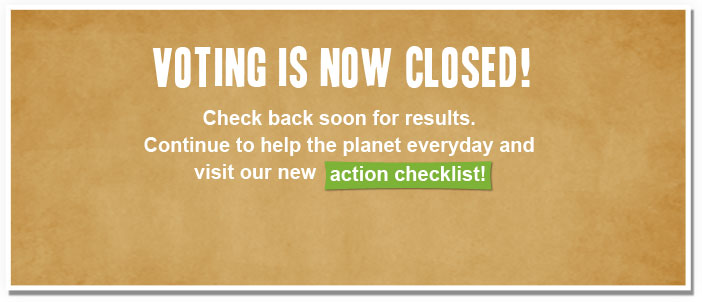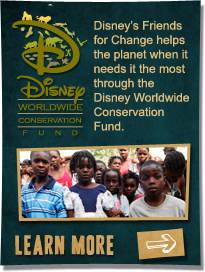

 |
Wildlife Conservation Society - Wildlife in the ArcticA $100,000 contribution will help protect arctic wildlife such as polar bears from the effects of climate change.Wildlife in the Arctic is on the front lines of climate change. This program will help increase understanding of how dramatic climate changes are affecting wildlife and will identify key conservation areas in the Arctic that should be protected to ensure the survival of Arctic species, including the polar bear. Plus, the lessons we learn in the Arctic will help us conserve invaluable species in locations throughout the world impacted by climate change! WILDLIFE CONSERVATION SOCIETY http://www.wcs.org/conservation-challenges/climate-change.aspx Read Progress Report
|
 |
San Bernardino National Forest Assn. - Children's Forest in Los Angeles$50,000 will be contributed to the Children's Forest in Los Angeles where kids like yourself will help to plant new trees.It's important to protect the forests of the world's tropical regions. It's important at home, too. With the help of youth volunteers just like you, this program is growing seedlings at a Children's Forest located within an hour's drive of Los Angeles. The forest won't just help absorb carbon - it will also be a place where kids can learn about forest ecology and the importance of forest restoration. SAN BERNARDINO NATIONAL FOREST ASSOCIATION http://www.fs.fed.us/r5/sanbernardino Read Progress Report
|
 |
Ecolife Foundation - Central Mexico's Oyamel forest.$25,000 will go towards helping end deforestation in Central Mexico’s Oyamel forest.Stopping deforestation is important. But what do you do when local communities rely on the forest to support their families? This program provides a solution. Central Mexico's ancient Oyamel forests are an endangered forest ecosystem, and the winter home for migrating Monarch butterflies. These forests are also the location for a unique program that provides income to local communities through the construction of fuel-efficient Patsari stoves. Communities are using these stoves instead of open fires, which reduces the need to cut trees, protects butterfly habitat, and keeps their families healthy. But that's not all - for each stove built, fifty trees are planted to bring the forest back to its original splendor! ECOLIFE FOUNDATION http://www.ecolifefoundation.org Read Progress Report
|
 |
CHF International - Green Stoves for Rwanda$25,000 will be donated to help decrease pollution and protect local habitats in Rwanda.In Rwanda, a small country in Africa that is home to one of the world's last remaining populations of endangered mountain gorillas, wood stoves are used to cook food and provide warmth. When trees are cut down for stoves, it not only impacts our climate but also puts the habitat of mountain gorillas at risk. The solution? This program provides special green stoves for families in Rwanda that are quicker, cleaner, and use less fuel. This means fewer trees need to be cut down - good for the people of Rwanda, good for animals, good for trees, and good for our climate! Read Progress Report
|
 |
BirdLife International and the Haribon Foundation$50,000 will help protect endangered tropical forests in the Philippines.The Philippine Eagle is the largest eagle in the world, with a wingspan of 6.6 feet. Its home is the tropical forests of the Sierra Madre mountain range, the largest old-growth forest cover in the Philippines. How can we protect it? This program manages the forest in a way that generates income for local communities and reforests areas of the Sierra Madre at the same time, protecting habitat for the Philippine Eagle and providing climate benefits for all of us! BIRDLIFE INTERNATIONAL Read Progress Report
|
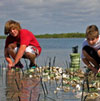 |
The Nature ConservancySave Reefs in Mosquito Lagoon, FLHelp stop oyster reefs from disappearing! Oyster reefs are important because they provide shelter for wildlife, promote clean water, and protect the shoreline. A recent study showed that 85 percent of the world's oyster reefs have already been lost! To save reefs at the Mosquito Lagoon in Florida, we will work with volunteers-including kids like you-to make "oyster mats." The mats restore the reefs by giving the oysters a new place to grow. We'll also educate the community about oysters and let them know what they can do to help |
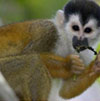 |
Natural Resources Defense CouncilCerro Osa Forest RestorationThe Osa Peninsula, located on Costa Rica's southern Pacific coast, is one of the wildest places left in the world. It is home to half of Costa Rica's 500,000 animal and plant species, including many that do not exist anywhere else. The Osa is a critical place for saving animals like the jaguar, squirrel monkey, and peregrine falcon. Unfortunately, this special area is being threatened by expansion of agriculture and other activities. The Natural Resources Defense Council will work with a local group, Friends of the Osa, to plant thousands of local trees and plants to restore 50 acres of forest land. The revived rainforest will once more be the home of unique wildlife and will offer local students a living laboratory to learn about protecting natural resources. |
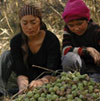 |
Fauna and Flora InternationalForest Fruits for the FutureMany people living in the countries of Kyrgyzstan and Tajikistan depend on their forests for survival - fruits and nuts for food to eat, wood for fires and other natural resources to earn an income. Almost all of the people in these communities use the forest with limited knowledge of their impact. This has led to a 90 percent decrease in the size of the fruit and nut forests in Central Asia. Fauna & Flora International's project will educate local community members, kids and young people specifically, through positive and fun activities to increase awareness about the implications of using these precious forests so frequently. With kids help the project will establish eco-youth clubs, tree nurseries and also create conservation plays, poems and dances to change attitudes and behaviour about sustainable forest use. |
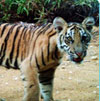 |
World Wildlife FundProtecting Indonesia's Tesso Nilo's HabitatSumatra is the only place in the world where elephants, tigers, rhinos and orangutans live together in the same habitat. In 2004 World Wildlife Fund (WWF) helped create Tesso Nilo National Park on the island of Sumatra as a safe zone for tigers and elephants. WWF will work with the local community to protect this habitat by training local people to patrol the ground-keeping away poachers and minimizing human/animal conflict and will also work to empower local children to care for their wildlife and environment by teaching them how to conserve their resources through several fun, hands-on initiatives. |
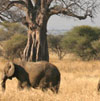 |
African Wildlife FoundationCommunities Give Elephants Room to RoamElephants are one of the most far-wandering species in all of Africa, traveling great distances in search of food and water. They are very smart and social animals that live in large families and watch closely over one another. Sadly, elephants are often attacked by poachers for their ivory tusks. They are also in trouble because the lands they live on and the paths they travel on are being destroyed. The African Wildlife Foundation (AWF) is working in Zambia to protect the habitats that elephants depend on and the pathways they travel. It is not only elephants that need help though. There are many poor people who live in this area. For that reason, AWF and local villages have agreed to help both elephants and people by protecting a critical elephant path and improving opportunities for local children to go to school. |
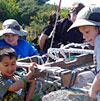 |
Algalita Marine Research Foundation - The Last StrawA $100,000 contribution will help kids promote the reduction of disposable plastic waste on the U.S. West Coast.Help kids promote the reduction of disposable plastic waste! As part of a Youth Summit focused on the impact of plastic trash on the marine environment, youth on the West Coast will be mobilized to prevent plastic waste in coastal habitats and will help launch "The Last Straw," a paddleboard made from 100,000 used plastic straws. |
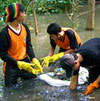 |
Talkin' Trash$50,000 will help kids in Arkansas explore how trash affects our planet.The "Talkin' Trash" program will help kids in Arkansas -- and across the country -- explore how trash affects water, wildlife, and habitat. And then they'll share their experiences through video campaigns and social media to get others to reduce, reuse, and recycle! |
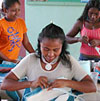 |
Fundacion Proyecto Titi through the Wildlife Conservation Network - Teens, Tamarins and Trash$50,000 will help support local Colombian women's efforts to make cool eco-friendly tote bags.Help local Colombian women make cool eco-friendly tote bags by recycling! Through the "Teens, Tamarins and Trash" program, local kids help protect Colombia's most endangered monkey, the cotton-top tamarin, by collecting and recycling plastic bags, over two million so far, that are then used to make totes, known as eco-mochilas. |
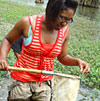 |
Fauna & Flora International in partnership with the Jakarta Green Monster volunteer networkA $25,000 contribution will help keep Indonesia's Angke River clean.Help keep Indonesia's Angke River clean! Through this program kids living in Jakarta can participate in regular weekend workshops. Then they will put their new knowledge to use by volunteering for wetland waste clean-ups and helping to develop community waste-management programs to protect their rivers and wetlands. |
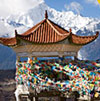 |
The Nature Conservancy - Meili Snow Mountain$25,000 will help spur the effort to keep China's sacred Meili Snow Mountain clean and green.China's sacred Meili Snow Mountain, home to endangered snow leopards and red pandas, is spectacularly beautiful. But tourists are leaving behind a new mountian - made of ugly trash. Before Meili can become a protected national park, this program must help organize community volunteers to keep it clean and green! |
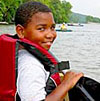 |
National Audubon Society - Pascagoula RiverA $100,000 contribution will help kids keep rivers clean in the United States.Through this program, kids will create cool rain gardens and "living" roofs that filter storm water to keep the Pascagoula River - the last large, free-flowing river in the continental United States - clean for people and wildlife. Even better, the young explorers and scientists who build these water-saving wild places in their schools and communities will post their work online and provide tips to show you how you can protect your local rivers, too! |
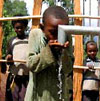 |
CHF International - Safe water in Ethiopia$50,000 will contribute towards improving the collection of safe drinking water in Ethiopia.Families in many parts of Ethiopia do not have enough clean and safe water for drinking, washing their hands, or cooking. To help these families, this program will repair wells so that the water inside is cleaner, build merry-go-rounds in schools that pump fresh water from the ground as they spin, and construct rooftop systems to catch rainwater that families can drink. |
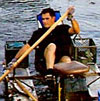 |
Algalita Marine Research Foundation - Plastics are Forever$50,000 will help create educational programs about watershed conservation in the U.S.Watersheds are important, but what are they? They're areas of land where all of the water drains into the same river or lake. This program will build upon Dr. Marcus Eriksen's trip down the Mississippi River in a boat made out of 232 2-liter plastic bottles, an old car seat and two bicycles by creating educational programs for school children about watershed conservation. The program will also establish Plastics are Forever recycling projects in communities stretching from Minnesota to Louisiana, helping inspire the next generation of watershed leaders to keep the Mississippi clean! |
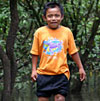 |
Fauna & Flora InternationalA $25,000 contribution will help reduce pollution in Brazil's lagoons and rivers.This program will help reduce water pollution in the rivers and lagoons of the Amazon Rainforest in Brazil. This pollution is very dangerous because local people are eating the poisoned fish that live in the rivers, which is making them sick. The program will build a plan that can decrease the pollution problem and help local people learn about health threats from eating contaminated fish. |
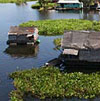 |
Conservation International - Tonle Sap LakeA $25,000 contribution will help encourage freshwater protection in Cambodia.This program will improve the lives of the people and animals - like hairy-nosed otters and fishing cats - that live on, in or near Tonle Sap Lake in Cambodia. Nearly three million people rely on the Tonle Sap for freshwater and food, but the water is dirty because people are cutting down the flooded forests that keep it clean. This program will make local people partners in the protection of the lake, by encouraging them to protect the forests so people get clean water and more food, and wildlife gets a place to live! |

